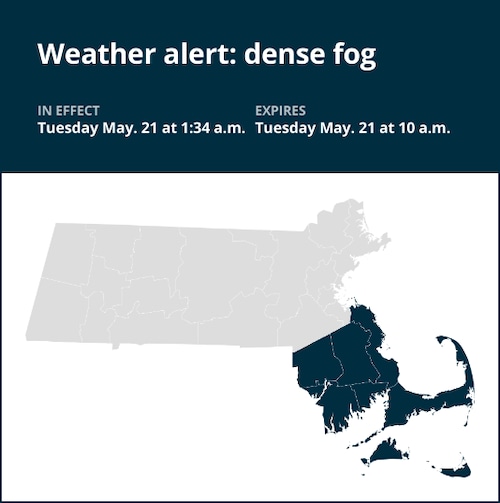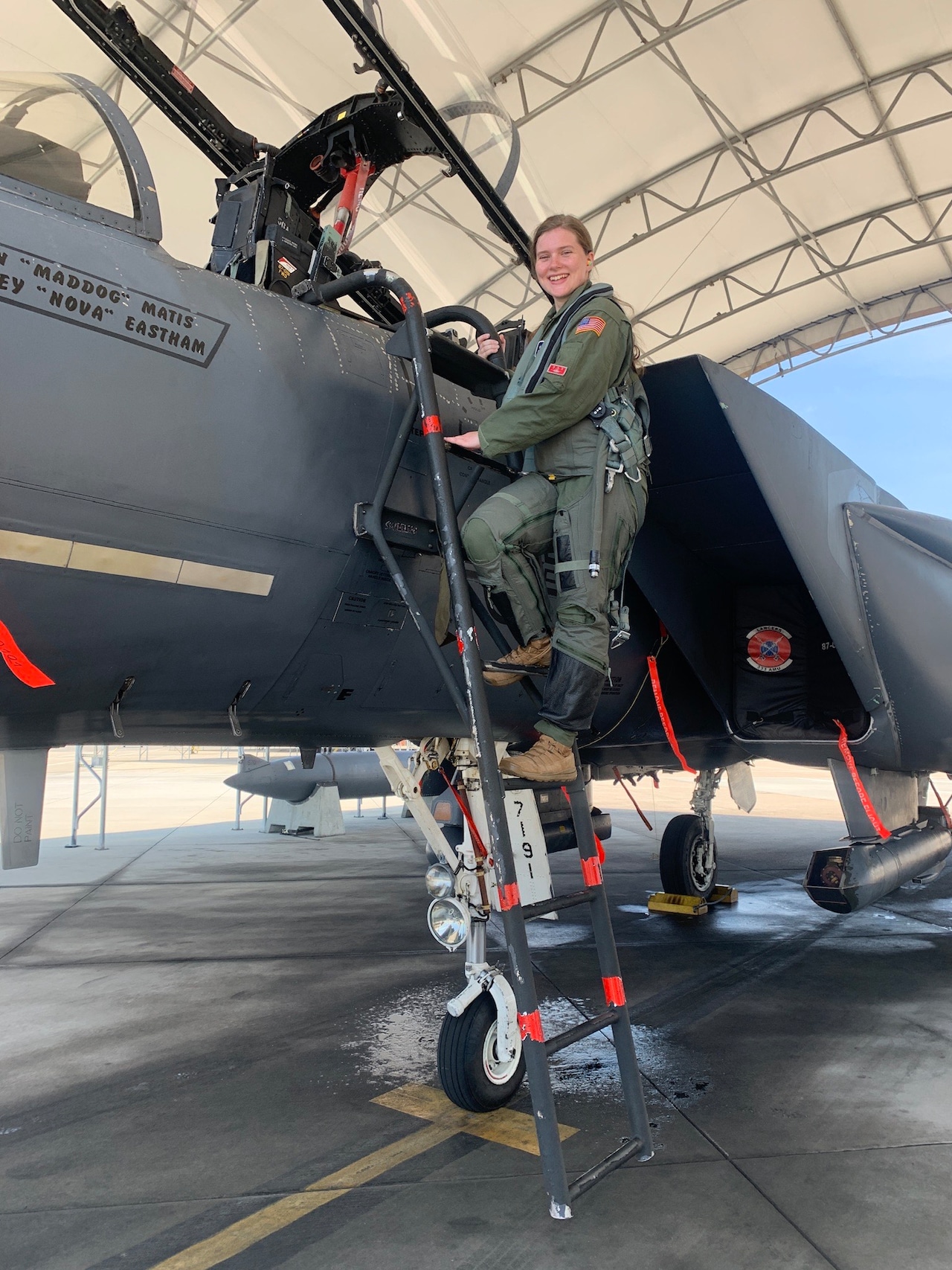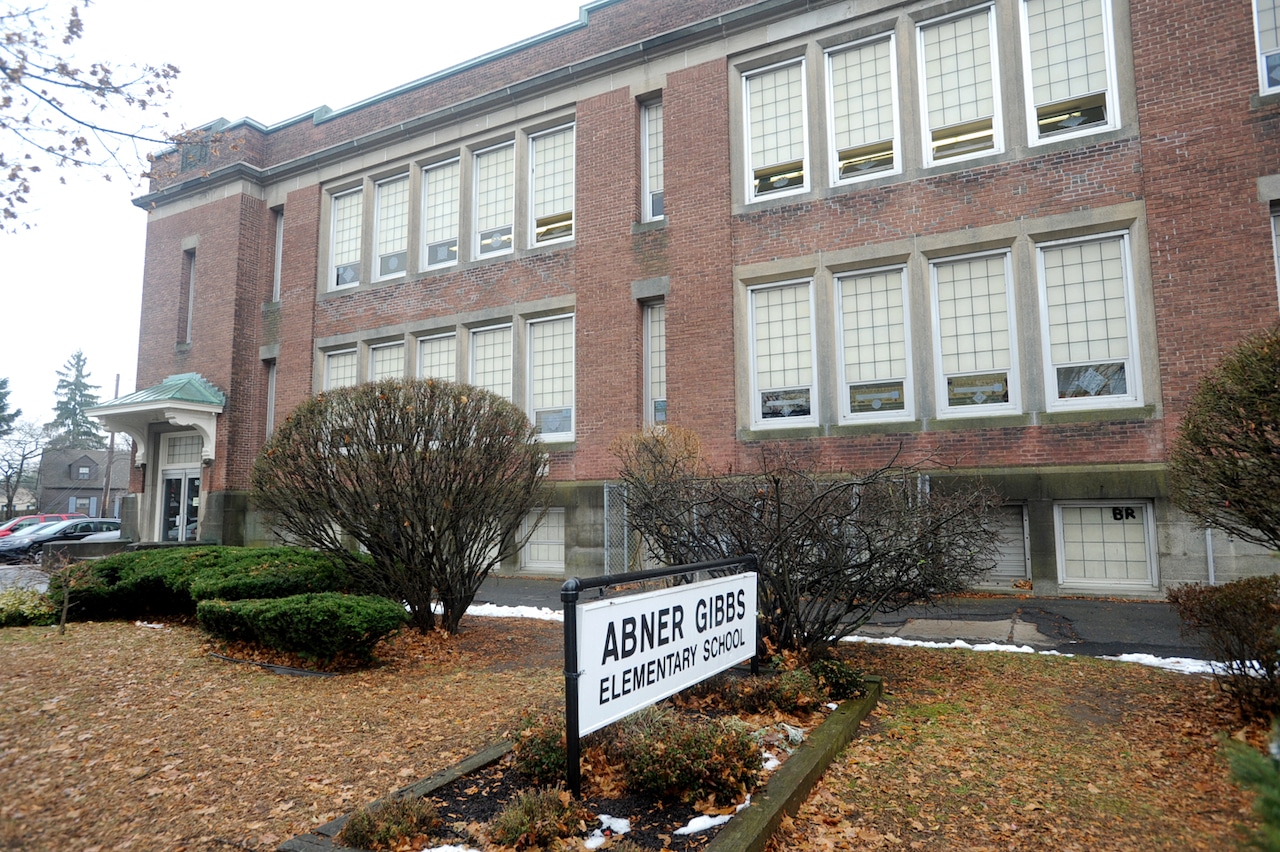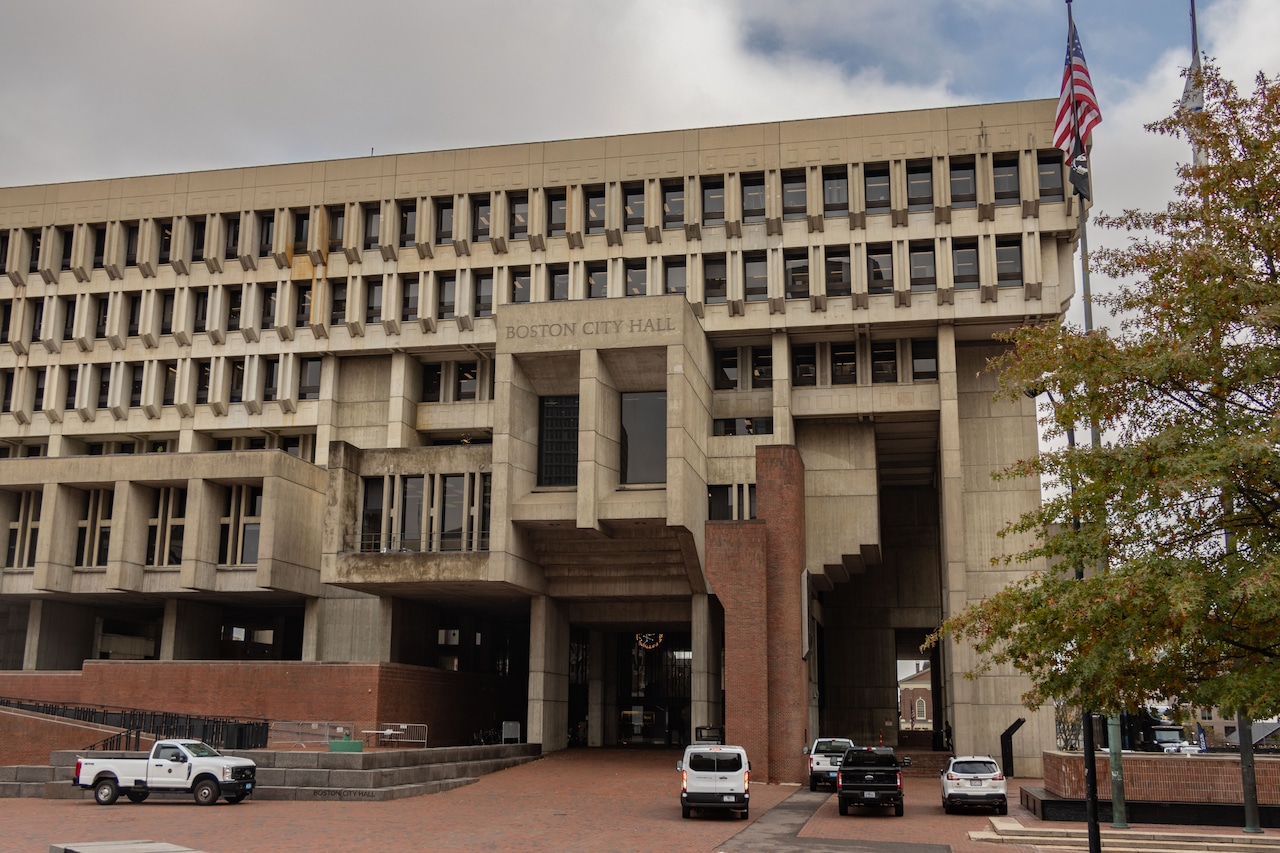The National Weather Service issued a weather alert at 1:34 a.m. on Tuesday for dense fog until 10 a.m. for Bristol, Plymouth, Barnstable, Dukes and Nantucket counties.
“Patchy dense fog is currently impacting much of the south coast with visibilities reduced to as low as 1/4 SM in several locations. The fog will spread into northern RI and just to the southeast of the I-95 corridor in SE MA. Visibilities are anticipated to improve during and after the morning rush hour. Motorists are urged to drive with caution and leave extra space between vehicles. Make sure to reduce speeds in low visibilities areas,” says the weather service.

Guidance from the weather service for navigating foggy conditions
If you need to drive through fog, remember these safety guidelines:
Reduce speed:
- Slow down and allocate extra travel time to reach your destination safely.
Visibility priority:
- Ensure your vehicle is visible to others by using low-beam headlights, which also activate your taillights. If you have fog lights, use them.
Avoid high-beams:
- Refrain from using high-beam lights, as they create glare, making it more difficult for you to see what’s ahead of you on the road.
Maintain safe gaps:
- Keep a considerable following distance to account for sudden stops or shifts in traffic patterns.
Stay in your lane:
- Use the road’s lane markings as a guide to remaining in the correct lane.
Visibility near zero:
- In cases of near-zero visibility due to dense fog, activate your hazard lights and seek a safe spot, like a nearby business parking lot, to pull over and stop.
No parking options:
- If no parking area is available, pull your vehicle as far to the roadside as possible. Once stationary, turn off all lights except the hazard flashers, engage the emergency brake, and release the brake pedal to ensure your tail lights are not illuminated, reducing the risk of other drivers colliding with your stationary vehicle.
By adhering to these weather service recommendations, you can navigate foggy conditions with greater safety, mitigating the risk of accidents and prioritizing your well-being.
Advance Local Weather Alerts is a service provided by United Robots, which uses machine learning to compile the latest data from the National Weather Service.






